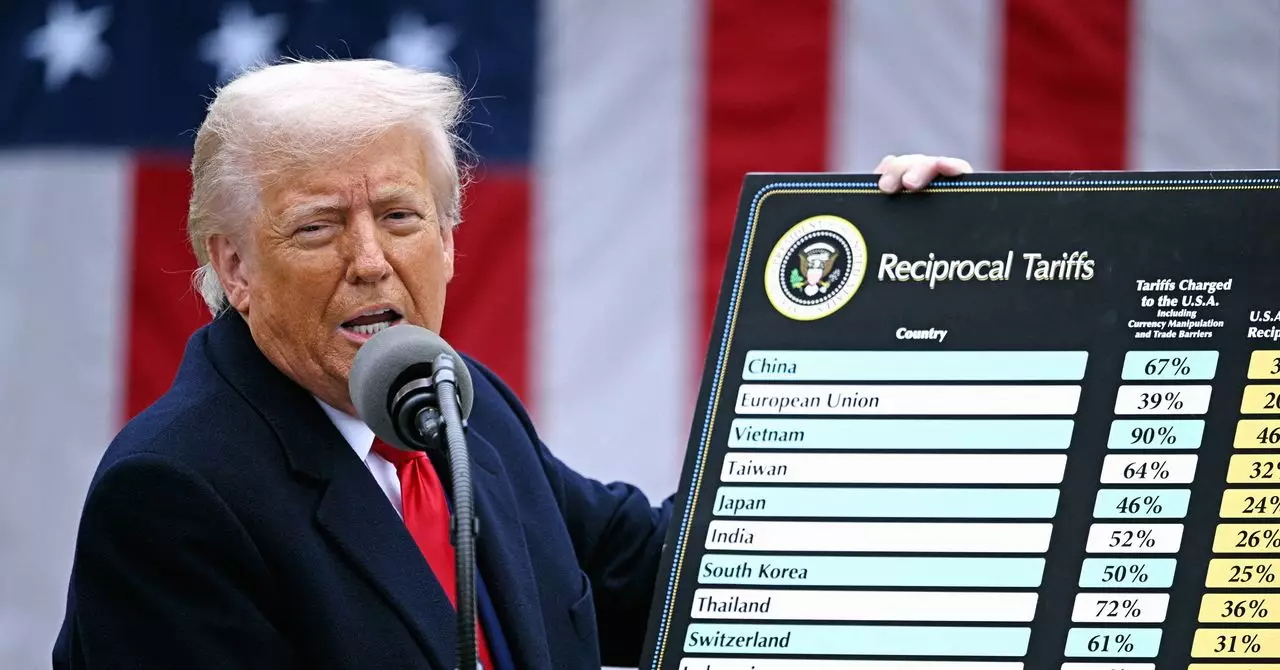The de minimis exemption has largely become a cornerstone for many retailers who thrive in the online space, especially for companies operating cross-border, like Shein and Temu. This exemption allows packages valued at $800 or less to enter the United States duty-free, which has resulted in the influx of millions of affordable products from China every year. While this practice has made it easier for American consumers to access low-priced goods, it has also led to complex trade dynamics that have effectively redefined the market landscape for various e-commerce platforms.
The charm of the de minimis rule lies not only in its consumer appeal but also in its enablement of lesser-known platforms like Etsy and eBay, allowing independent sellers to thrive in a competitive market. However, the anticipated scrapping of this provision has stirred significant concern among both sellers and buyers, as the implications seem vast and widespread.
The Political Landscape and its Economic Ramifications
Former President Trump’s attempt to overturn this exemption reveals a striking intertwining of trade policy and political maneuvering. His executive order aimed at dismantling the de minimis exemption, scheduled to take effect on May 2, reflects an aggressive approach to U.S.-China relations. Supporters of the removal argue that it could lead to better control over imports and ensure that local businesses are not cannibalized by cheaper foreign alternatives.
However, critics like Ram Ben Tzion, cofounder of digital shipment vetting platform Publican, warn that the ramifications could be far worse than anticipated. “Letting go of the de minimis exemption could entirely reshape the American shopping experience,” he states, signaling that a future filled with high tariffs would inherently make everyday purchases significantly more expensive. This poses a critical question: Are we genuinely ready to pay more for the sake of perceived national interest?
The Reaction from Major Players
When news of the impending policy change broke, major retailers and e-commerce giants stood on the precipice of uncertainty. Companies such as Amazon, which recently launched a division for affordable Chinese goods, now face the potential loss of a competitive edge. Without the de minimis exemption, these companies may find themselves bogged down by hefty tariffs, driving up prices for consumers and diminishing their market accessibility.
Interestingly, some businesses see the shifting tides as an opportunity rather than a threat. As companies begin to navigate the costly terrain of tariffs, logistics firms are experiencing an uptick in demand for their services. For instance, Jay Gerard of Nuvocargo notes that although he despises tariffs, they have inadvertently boosted his company’s demand by pushing importers to seek assistance with customs processing and freight logistics.
The Technological Response to Tariff Challenges
The looming tariffs have led to a surge in technological solutions aimed at mitigating the challenges associated with cross-border trade. Firms like Palantir have swiftly capitalized on the uncertainty by promoting advanced artificial intelligence services designed to help businesses optimize their operations in the context of evolving tariff landscapes. As companies scramble to adapt to these regulations, innovations aimed at maximizing efficiency and compliance are emerging as crucial lifelines.
This landscape of technological adaptation indicates a profound shift in the marketplace, where companies no longer solely compete on product quality or pricing but also rely on technological infrastructure to navigate complex international trade regulations. As online retailers rethink their strategies, supply chain management tools and data analytics platforms will invariably become indispensable assets.
The Bigger Picture: Rethinking Consumerism
The potential changes to the de minimis exemption invite broader considerations about American consumerism. If consumers find themselves burdened with additional duties and fees, their purchasing behaviors may shift fundamentally. This scenario raises important questions: Will Americans still prioritize low prices over sourcing quality domestically? Will this prompt a resurgence in local manufacturing?
The answer to these queries remains uncertain, yet the implications are as profound as they are complex. A fundamental shift toward more expensive goods could prompt a re-evaluation of consumer values, pushing many to consider the true cost of “cheap” products. In a sense, the unfolding narrative surrounding de minimis could serve as a catalyst for a more conscious consumer philosophy, potentially reshaping not just online shopping but the entire fabric of American retail.
As the reactions to Trump’s order continue to unfold, it remains to be seen how both businesses and consumers will ultimately adapt to these transformative changes affecting e-commerce at every level.

